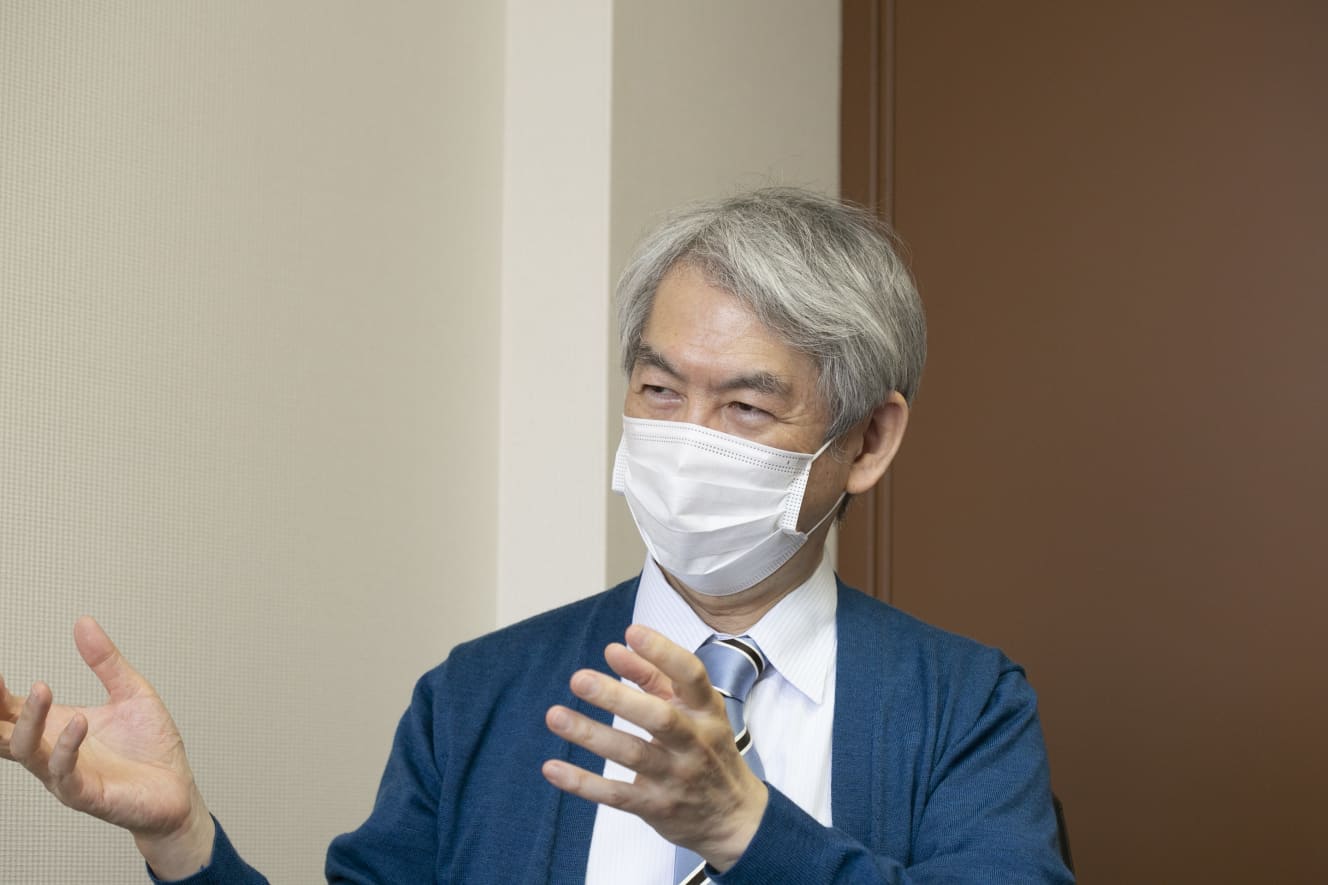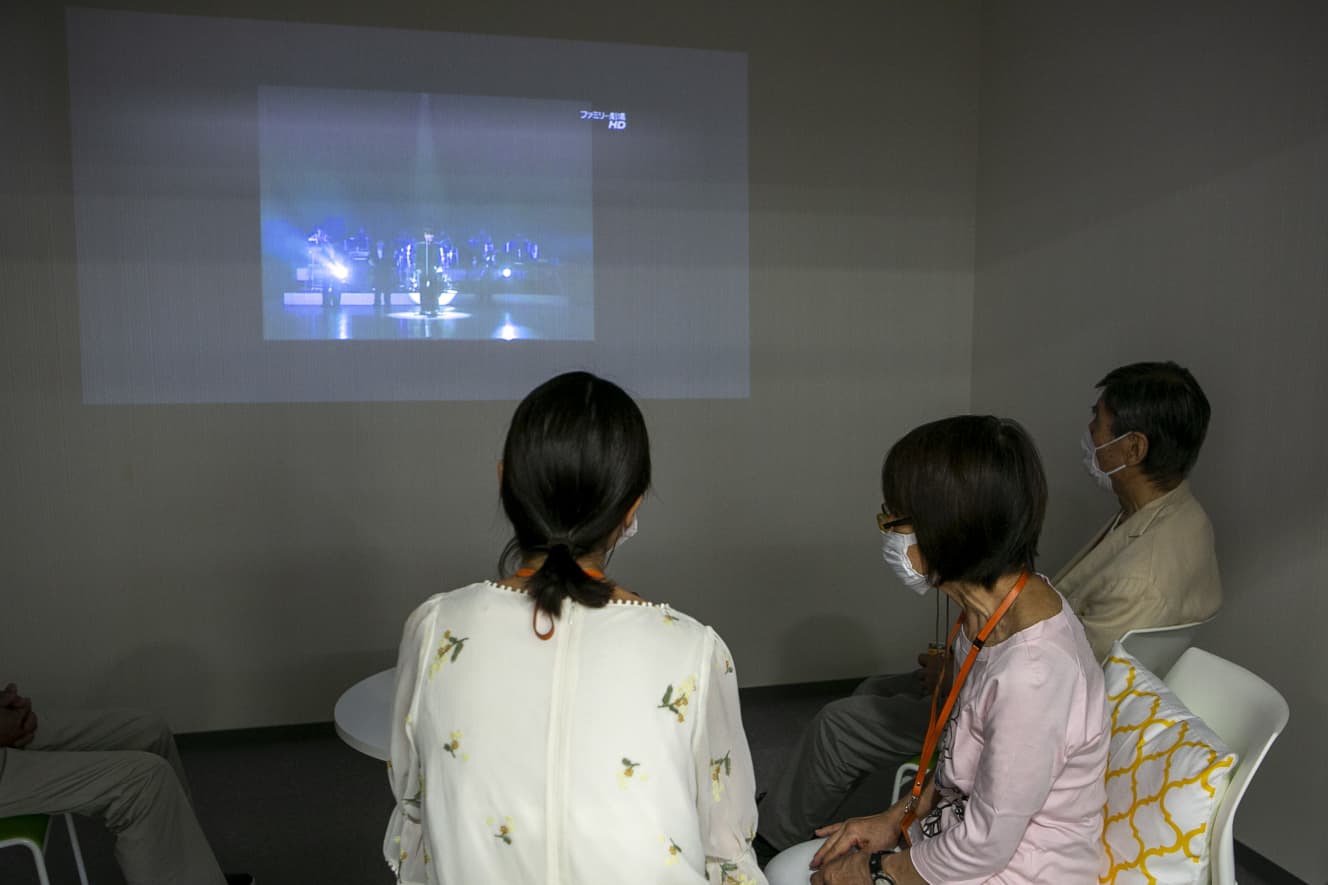Work errors increasing in 40s…cause of cognitive decline? An Expert’s Answer
Report on the "Healthy Brain Cafe" for dementia prevention and pre-diabetes
Could it be that she is in a stage called “SCD (Subjective Cognitive Decline)” that only she is aware of?
There is an episode in Yasuko Mitsuura’s book, “Turning 50” (Bungeishunju), in which she inadvertently lost her regular radio program due to a misunderstanding of the day of the week.
It was quite a chilling story, as I had just turned 50 and was suddenly feeling uneasy because I had temporarily made a series of mistakes that I had never made before.
It is hard for me to say this because I might lose the trust of the people I work with, but for example, …….
- I finished a manuscript early but forgot to send it while I was eating.
- Forgetting to send a manuscript while eating after finishing it early.
- Registering the deadline as the “0th” day on my phone, but not entering the time. I thought the deadline was in the evening, but it was actually noon. ……
- I entered the deadline into my phone one day ahead of time in order to submit the manuscript earlier. Forgetting to do so, I rushed to write the manuscript and said, “By the way, I have one more day …….
I wondered if it was because I was working too much beyond my capacity, in addition to my inherent goofiness, or if it was simply aging, or if there was a problem with my cognitive function.
Feeling uneasy, I did some research on the Internet and found many tweets from people who, like me, started making more mistakes at work in their 40s. What I was curious about was the difference between the worrying cases and the not-so-worrying cases.
That’s why I visited the Kenbou Cafe, a center for dementia prevention and pre-diabetes, which opened in Yotsuya, Tokyo in April this year.


Exercise is the most effective way to prevent dementia! The latest research shows
This is a preventive café that aims to prevent dementia through physical and mental recreational activities such as gymnastics, painting classes, and Igo Shogi. After about 30 minutes of chatting, the participants sat on chairs and stretched their stomachs, inner thighs, and hugged their knees to open their hip joints.
“Recent studies have shown that exercise is the most effective way to prevent dementia.
Healthy muscles and healthy nerve cells will deteriorate if you do nothing. Exercise, on the other hand, improves blood flow and allows oxygen to reach the brain. In animal experiments, when comparing exercising and non-exercising animal models, it has been found that the exercising animals are less likely to accumulate a protein called amyloid beta. In Alzheimer’s disease, the accumulation of the protein amyloid-β in the brain triggers the accumulation of the protein tau. Tau further impairs nerve cells, causing brain atrophy, which leads to memory impairment and various other symptoms in daily life.
So says Dr. Heii Arai, director of the Alz Clinic Tokyo and professor emeritus at Juntendo University, the supervisor of the “Healthy Brain Café” and a leading expert on dementia prevention.
As soon as I asked him about my mistakes, he said, “The cause is everything I just told you. When I nodded my head and said, “Oh, ……, that’s not true.
He added, “It could be personality, over capacity, aging, cognitive decline, it could be anything. However, because we think of it as a memory disorder, we immediately start talking about dementia. Forgetting something results in a blunder, but it’s not just a memory problem that causes it to go away, there are also problems with attention and concentration. For example, forgetting while doing something else is like the story of Sazae-san, where attention is distracted, and that is different from memory.
Memory is something that goes into the brain and is retrieved from there, and it has to remain as a memory in the brain, but there are stories that don’t remain. Memories that are overwritten when you’re doing other things are called ‘working memory,’ and it’s a problem of attention and concentration.
I was relieved to hear that. Then, I asked him if there was any particular need to see a medical institution.
“It would be better to see a doctor at least once. Because the current thinking is that there is a dichotomy between health and illness, like black and white.
But in fact, there is a gray area between the two, and such gray area includes the troubles I mentioned earlier as a preliminary stage.
In the case of mild cognitive impairment (MCI), there is a level of forgetfulness that can be noticed by others, but the examination shows no abnormalities. In addition, there is a stage called “SCD (Subjective Cognitive Decline)” that only you are aware of.
In other words, the various problems I mentioned above are SCD, which is the preliminary stage of possible Alzheimer’s disease in the future. Of course, there are many cases where this is not the case. So, if you ask me, “Should I take the test?
For example, when you feel that your stomach hurts, at first only you will notice it, but if you hang around, others will start to notice it. If it is a disease, it will get worse and worse, and in some cases, it could even be cancer.
In other words, when you ask others, “What’s wrong? Does your stomach hurt? MCI is when people say to you, “What’s wrong? If you are concerned about it, you should see a medical institution.

Alzheimer’s disease, which accounts for 70% of all dementia cases, begins 20 to 25 years before the onset of the disease.
So, does this mean that many people in their 40s and 50s who make mistakes at work are in this gray area of SCD?
“Yes, it does. However, people in their 40s and 50s have many responsibilities in society. They may or may not be married, their relationships become more and more complicated, and they may have a mortgage to pay. When you think about life events and life cycles, your 40s and 50s are one dangerous age where a lot of factors start to pile up compared to your 20s and 30s.
Of course, the aging of the body and brain is also a major factor.
“When you are in your 20s and 30s, your body is healthy and you can recover from overexertion, but when you are in your 40s and 50s, both your body and brain start to age, and you can’t take it anymore.
Of course, the processing capacity inevitably declines, but at the same time, the number of things that need to be processed increases, which leads to overflow and distraction.
Also, when we were young, our frontal lobe function was good and we were able to process things at the same time, but as our frontal lobe function deteriorates, we gradually become unable to do so. Also, when you were young, you could stay up all night and not get enough sleep, but now you start to get tired, and after drinking deeply, alcohol has a greater effect on your brain than before. That kind of vicious cycle starts in your 40s and 50s, and that’s the risk itself.”
In other words, the time when we start making these mistakes is the time when we need to change gears and reevaluate the way we work and the pace of our lives.
“And whether or not you can change gears in your 40s and 50s will make a difference in the outcome of your 60s and 70s. The result is that you will age 10 years or more faster, and if you continue to work in a state of overflow without solving the increasing risk factors such as lack of sleep, lack of exercise, and even lifestyle-related diseases in your 40s and 50s, there is a possibility that your brain will atrophy. That’s what I mean.
Incidentally, the WHO Guidelines for the Prevention of Dementia are divided into the following 12 categories, and for each of them, the evidence for what is generally said to be “good for dementia prevention” is examined and recommended levels are introduced.
- Physical activity (strong)
- Smoking cessation (strong)
- Nutritional interventions (strong)
- Alcohol use disorder intervention (condition dependent)
- Cognitive interventions (condition dependent)
- Social activities (to be supported)
- Weight management (condition dependent)
- Hypertension management (condition dependent)
- Diabetes management (subject to conditions)
- Dyslipidemia management (subject to conditions)
- Dealing with depression (condition dependent)
- Management of hearing loss (insufficient evidence)
Finally, Dr. Arai had a message for those in their 40s and 50s.
“Alzheimer’s disease accounts for 70% of all dementias. It starts 20 or 25 years before the onset of the disease, so for example, if a person develops the disease at the age of 70, the disease has already started at the age of 45 to 50.
In other words, the changes in the brain have started progressively in the 40s and 50s, and amyloid-β is accumulating rapidly, damaging the nerve cells.
In this sense, the 40s is actually a very important period for Alzheimer’s disease, which begins at the age of 70. In particular, if you can recognize SCD in its early stages, it is possible to suppress the onset and progression of the disease by improving your lifestyle. In order not to miss any changes, check your health regularly, and if you have any worrisome symptoms, see a medical institution.


Arai Heii is the director of the Alz Clinic Tokyo and a professor emeritus at Juntendo University. After retiring from Juntendo University, he opened the Alz Clinic Tokyo, a clinic for psychiatry and internal medicine, in 2019. He is the author of “18 Ways to Prolong Your Brain Life and Avoid Dementia” (published by Bunshun Shinsho), which is based on his years of experience in outpatient dementia treatment and the latest research findings.
For more information on the “Healthy Brain Café” supervised by the Alz Clinic Tokyo, click here.
Interview and text by: Wakako Tago
Born in 1973. After working for a publishing company and an advertising production company, she became a freelance writer. In addition to interviewing actors and actresses for weekly and monthly magazines, she writes drama columns for a variety of media. JUMP 9 no Tobira ga Openitoki" (both published by Earl's Publishing).
Photography: Mayumi Abe
